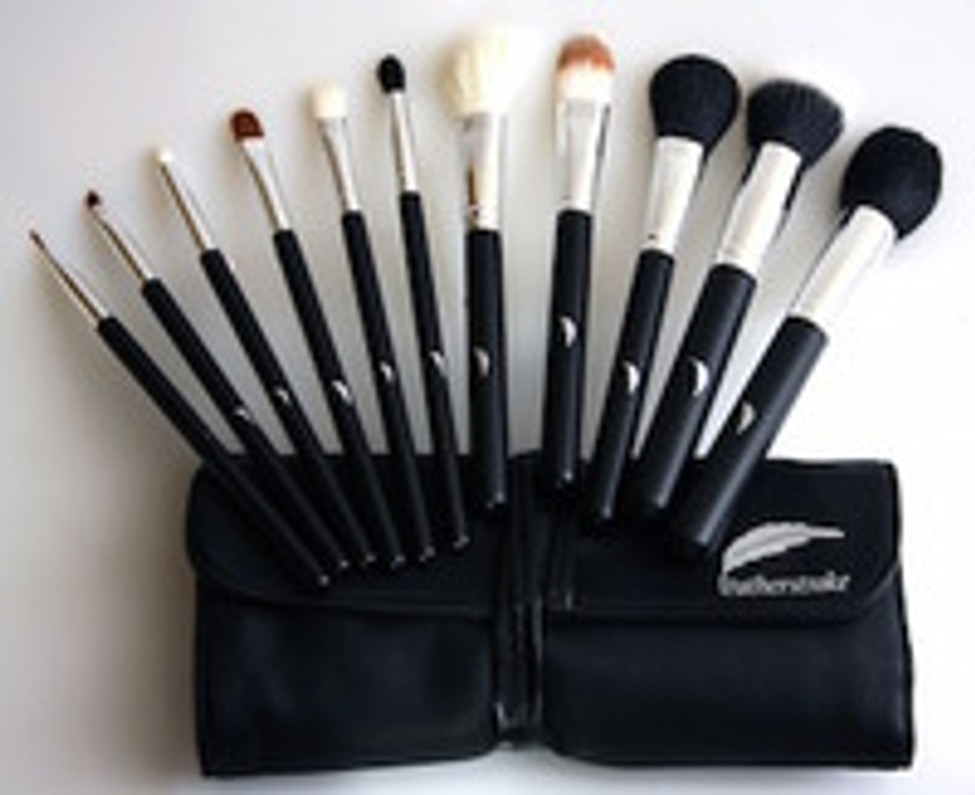Are You Cleaning Your Makeup Tools Enough?
 If
you’re like most women, you wear makeup daily. And you likely have a collection
of makeup brushes, sponges, and applicators to help you apply your colors
perfectly so you always look your best. But for many of us, while we may be extremely
particular in how we put ourselves together before leaving the house, thoughts
about our makeup tools leave our minds when we leave the bathroom. Unfortunately,
that could mean that you’re putting something more than makeup on your
face—namely germs.
If
you’re like most women, you wear makeup daily. And you likely have a collection
of makeup brushes, sponges, and applicators to help you apply your colors
perfectly so you always look your best. But for many of us, while we may be extremely
particular in how we put ourselves together before leaving the house, thoughts
about our makeup tools leave our minds when we leave the bathroom. Unfortunately,
that could mean that you’re putting something more than makeup on your
face—namely germs.
Makeup Tools Are a Breeding Ground for Bacteria
When you use your makeup tools day in and day out, you’re not only caking them with makeup and powder, you’re adding facial oils. Old makeup, oil from your face, and just leaving these brushes in the open air (or on the counter or in a plastic bag) can attract more dirt and grime. They are essentially a breeding ground for dangerous bacteria, which can lead to a plethora of skin issues.
Skin Issues You Might Be Attracting
If your makeup tools aren’t clean, you’re adding dirt, makeup, and oils to your face daily. Even if you’re diligent about washing your skin, if you’re not washing your brushes, sponges, and applicators, you might be defeating the purpose. Some skin problems you may incur due to using dirty makeup tools include:
Breakouts: Let’s say you use your favorite makeup tools for multiple daily touchups to reduce shine. Every time that tool touches your skin, it picks up those oils and then cakes them and your makeup in your pores, leading to clogged pores and aggravated breakouts, specifically in the T-zone area.
Skin Irritations: Have you noticed that the skin around your eyes is red all of a sudden? Or that you have dry or oily areas you didn’t have before? That might be due to sensitive skin—or that your makeup tools aren’t clean. The skin around the eyes is naturally more delicate than the rest of the face, so when you add excess dirt and makeup, you can definitely end up with more skin irritations.
Pinkeye: Speaking of irritations around the eyes, how about pinkeye, AKA conjunctivitis? This can be a real issue if you share your eye makeup tools with anyone (which you should never, never do), but even if you’re the sole user, your dirty brushes, sponges, and applicators contain bacteria that can make their way into your eyes. Conjunctivitis is highly contagious, so if you have it, be sure to use a clean makeup tool for each eye so you don’t transfer the situation while you’re seeking treatment.
Staph Infection: When you hear of staph, you might only think about a hospital situation, where staph can be easily transferred, but it can also happen right at your vanity. This is yet another case of bacteria left to fester and get into your skin. Hopefully, you would catch the situation early, but why take the chance by having dirty makeup tools?
How Often Should You Clean Your Makeup Tools?
Ideally, many makeup professionals suggest you use disposable makeup brushes and tools or wash them daily. If that doesn’t seem doable for you, make a plan to wash your brushes and applicators once a week. Run water on brush or applicator, rub against an antibacterial bar soap, and scrub the brush against your fingers or palm to remove the leftover residue. Rinse the tools thoroughly and allow to air dry on a clean towel. Do not put the wet brush right into your container because the water will slide down and leave water on the glue that holds the bristles to the handle, causing them to separate.
Perhaps Buying New Makeup Tools Is the Answer
In addition to washing your makeup brushes and applicators weekly, you should also replace them regularly. If it’s been awhile since you bought new tools and you’ve been remiss in washing them, starting over is always a good choice. Beauty Makeup Supply has an extensive selection of top-quality makeup tools for all of your beauty needs. And with great customer service, no high minimums, and quick, easy ordering, what are you waiting for?
Recent Posts
-
Handmade Beauty: Start Small, Package Well, Grow Big
Step-by-Step Guide to Launching Your Handmade Cosmetic Brand If you’re ready to dive into …4th Apr 2025 -
Choosing the Perfect Plastic Bottles for Your Beauty Brand: Types, Sourcing, and Branding Tips
Choosing the Right Plastic Bottles for Your Beauty Brand The beauty industry thrives on aesthetics, …13th Mar 2025 -
How Premium Beauty Packaging Transforms Brand Identity
The Art of Luxury Beauty Packaging: Elevate Your Brand with Elegance In the competitive world of bea …3rd Feb 2025




